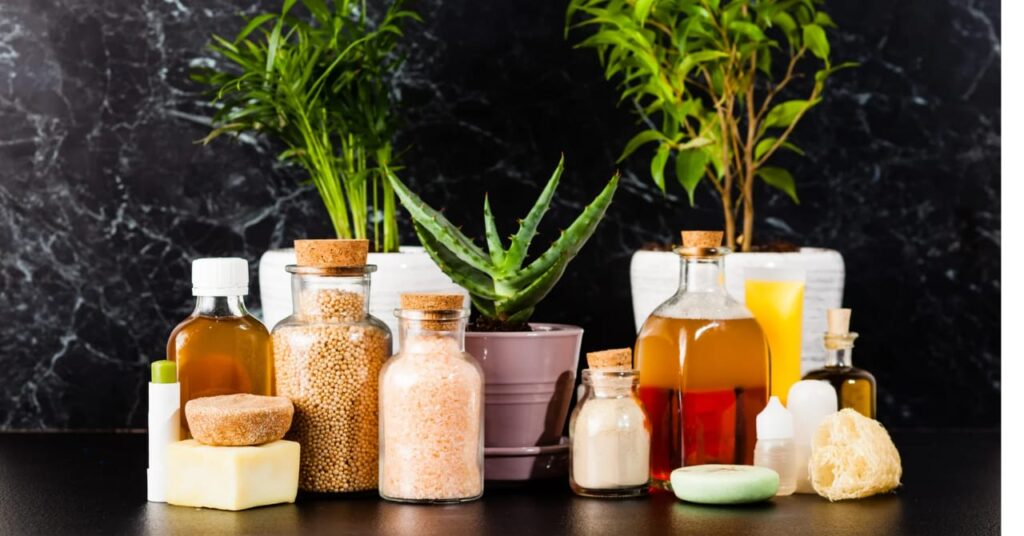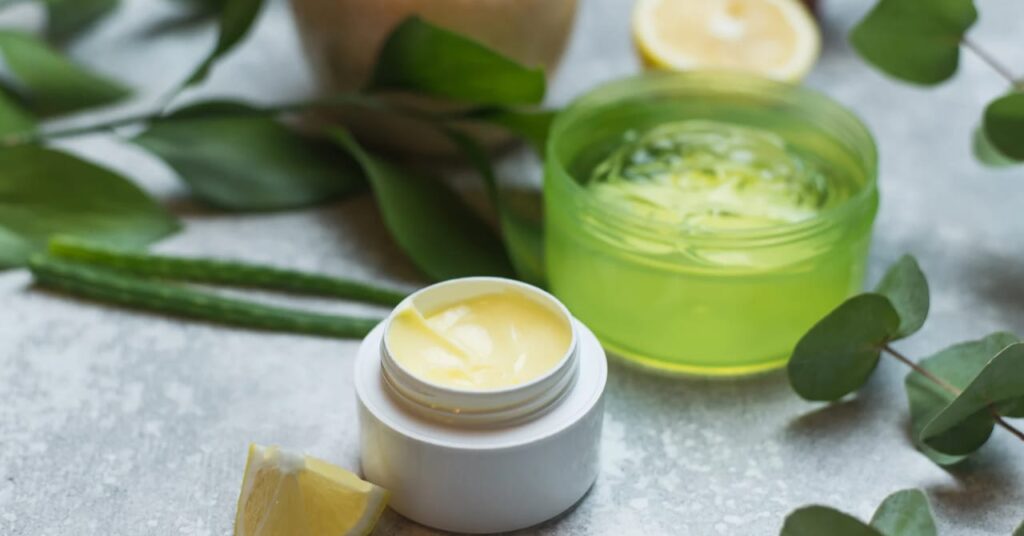
Building a skincare routine that is healthy, effective, and environmentally conscious doesn’t have to be overwhelming. With more people embracing organic skincare, the shift toward clean beauty and plant-based skincare has never been stronger. Whether you’re new to natural beauty or looking to upgrade your current regimen, this guide will walk you through everything you need to know about creating the best organic skin care routine for your skin type.
What Is an Organic Skincare Routine?
An organic skincare routine involves using skincare products made from natural ingredients that are grown without synthetic chemicals, pesticides, or GMOs. These products are free from harsh preservatives, artificial fragrances, and other potentially harmful additives found in conventional skincare.
Unlike traditional beauty routines, an skincare regimen focuses on the health of your skin and the planet. Most products are also cruelty-free, vegan skincare options, and come in eco-friendly packaging.
Benefits of an Organic Skincare Routine
1. Gentle on the Skin
Natural ingredients are less likely to cause irritation, making them ideal for sensitive skin types.
2. Free from Harsh Chemicals
Organic products avoid parabens, sulfates, and synthetic dyes, which can clog pores or trigger breakouts.
3. Environmentally Friendly
Most natural skincare brands follow eco-friendly and sustainable practices, helping to reduce your carbon footprint.
4. Cruelty-Free and Ethical
Many brands that offer the best organic skin care are also committed to being cruelty-free, ensuring no animal testing is involved.
5. Packed with Nutrients
Natural botanical extracts like aloe vera, chamomile, and green tea are rich in antioxidants, essential for maintaining healthy, glowing skin.

How to Build the Best Organic Skincare Routine
Creating a daily natural skincare regimen is all about understanding your skin’s unique needs. Here’s a step-by-step breakdown:
Step 1: Identify Your Skin Type
Before choosing products, determine if your skin is:
- Oily: Shiny and prone to breakouts
- Dry: Flaky or tight
- Combination: Oily in the T-zone, dry on the cheeks
- Sensitive: Easily irritated
- Normal: Balanced and clear
Knowing your skin type helps you choose the best organic skin care products that work for you.
Step 2: Cleanse with a Gentle Organic Cleanser
Cleansing is essential to remove dirt, oil, and impurities.
Look for cleansers that include:
- Aloe vera
- Rose water
- Chamomile extract
These natural ingredients provide hydration while gently cleaning your skin.
Step 3: Apply a Toner
Toners help balance pH levels and tighten pores. Choose an alcohol-free toner made with ingredients like:
- Witch hazel
- Cucumber extract
- Lavender water
These promote clean beauty and refresh the skin without drying it out.
Step 4: Use Targeted Serums
Serums provide concentrated nutrients to treat specific concerns like:
- Acne → Tea tree oil serum
- Fine lines → Vitamin C or hyaluronic acid
- Redness → Calendula extract or green tea
These are key components in a modern plant-based skincare approach.
Step 5: Moisturize Daily
Hydration is key to maintaining skin elasticity. Opt for moisturizers containing:
- Shea butter
- Jojoba oil
- Avocado oil
These vegan skincare ingredients nourish deeply without clogging pores.
Step 6: Don’t Forget Sunscreen
Many people overlook this step, but eco-friendly, mineral-based sunscreens made from zinc oxide or titanium dioxide offer excellent protection without toxic chemicals.

Morning vs. Evening Organic Skincare Routine
Morning Routine:
- Cleanser
- Toner
- Serum (e.g., Vitamin C)
- Moisturizer
- Natural sunscreen
Evening Routine:
- Cleanser
- Toner
- Serum (e.g., hyaluronic acid or retinol alternative)
- Night cream or heavier moisturizer
Nighttime is the perfect time to nourish and repair your skin using rich, plant-based skincare treatments.
Top Ingredients to Look For in Natural Skincare
Here are a few natural ingredients that work wonders:
- Aloe Vera – Soothes and hydrates
- Green Tea Extract – Fights free radicals
- Rosehip Oil – Brightens and improves elasticity
- Calendula – Reduces inflammation
- Coconut Oil – Deeply moisturizes
Avoid synthetic fragrances, artificial colorants, and anything you can’t pronounce — it’s usually not part of clean beauty.
Tips for Maintaining an Organic Skincare Routine
- Patch test new products
- Be consistent – give products time to work
- Store products in cool, dark places
- Stay hydrated and follow a healthy diet
- Use cruelty-free and eco-friendly brands whenever possible
Consistency and ingredient quality matter more than how many products you use.
Sorry if the link is not working you can click below,
Conclusion: Why Go Organic
A well-rounded organic skincare routine is more than just a trend—it’s a long-term investment in your skin’s health and the environment. By choosing natural skincare products with high-quality, plant-based, and cruelty-free ingredients, you’re not only nourishing your skin but also supporting sustainable beauty practices.
Whether you’re looking for glowing skin, fewer breakouts, or just a gentler approach to beauty, organic is the way to go.
FAQs
1. Can I switch to an natural skincare routine immediately?
Yes, but it’s best to transition gradually. Start by replacing one product at a time to avoid overwhelming your skin.
2. Are organic skincare products better for sensitive skin?
Absolutely. They often contain soothing, natural ingredients that help reduce redness and irritation.
3. How do I know if a product is truly organic?
Look for certifications like USDA Organic, COSMOS Organic, or Ecocert. Also, read the ingredient list for transparency.
4. Is vegan skincare the same as organic skincare?
Not necessarily. Vegan skincare means no animal-derived ingredients, while organic skincare refers to how ingredients are grown and processed. Many products are both.
5. What’s the most important step in an organic skincare routine?
Cleansing and moisturizing are foundational, but sunscreen is crucial for long-term skin health.

